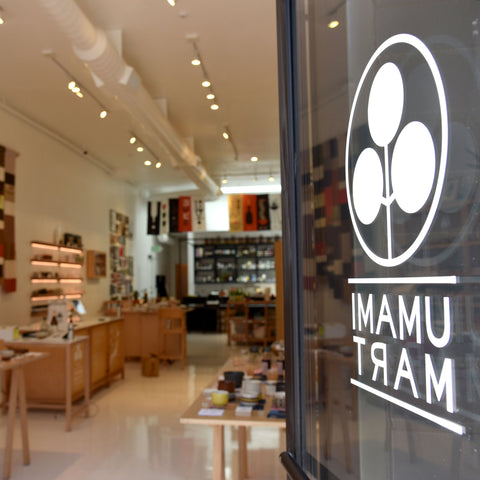
When we pulled up to Ikehara Shuzo this past February, I would have never guessed that the building housed an awamori distillery. Situated in a residential neighborhood with no interior space to waste, the pint-sized distillery and tasting room is extremely organized, well-planned, and spotless – with all the fermentation tanks in one room, the still in the main room, with the bottling room screened off by a glass door.
Yu Ikehara oversees operations at Ikehara Shuzo as third generation CEO – his great-grandparents started the company making miso, soy sauce and awamori in 1951, and was left to his great-grandmother Nobuko to manage (along with raising her family) when her husband passed away at 40.

Ikehara led us through a tasting of his portfolio and gave us a little education on awamori, his production methods, and his beloved Ishigaki Island. He told us that back in the days of his great grandparents, everyone made their own awamori at home and that before the war, the black koji strain called Aspergillus Luchuensis aka Inui was widely used. Today, awamori is mainly made with either the black koji strains Aspergillus Awamori (produces umami) or Aspergillus Saitoi (produces acidity). Ikehara is making huge waves with the use of Inui – it helps create an awamori that incorporates umami, acidity, and depth, and has won several international awards.

The lineup of awamori made at Ikehara Shuzo: Akauma, Shirayuri, and their flagship brand.
Ikehara was 24 years old when he took over the distillery, and in 2021, released Shirayuri, made with Inui koji, to acclaim. Made by just two employees, Shirayuri is a bombshell of a drink, and dammit, how on earth does it taste like it’s been aging for years?!?? That, my friends, must be the magical, historic Inui mold. We have yet to see what else Ikehara comes up with – the future of awamori is bright and ever-evolving.
Entrance to the production room:



 Ikehara makes koji by hand here.
Ikehara makes koji by hand here.




They distill everything in here!
 The quaint and spotlessly clean bottling room.
The quaint and spotlessly clean bottling room.
 A magazine featuring Ikehara with his grandparents, second and third generation owners.
A magazine featuring Ikehara with his grandparents, second and third generation owners.

An old bottle of Akauma, an awamori they have been making for decades.





Comments (0)
There are no comments for this article. Be the first one to leave a message!